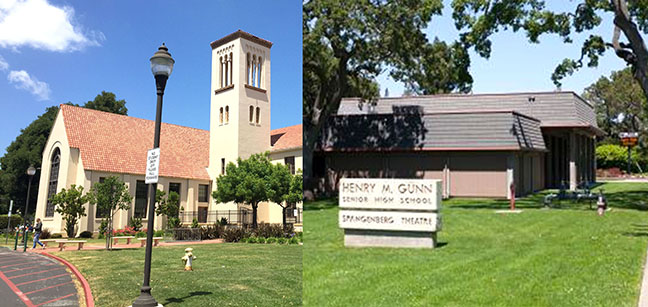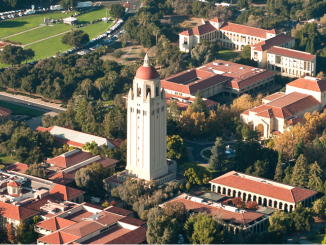
BY EMILY MIBACH
Daily Post Staff Writer
The Palo Alto School Board tonight (July 7) voted unanimously to ask voters in November to extend the current $836-per-parcel tax for another six years.
However, the tax won’t pass unless there is a campaign in favor of the tax, according to pollster Gene Bregman, who was hired by the school district. According to a poll Bregman conducted early last month, only 62% of voters would pass the tax, which needs 66.7% approval.
But after telling voters about the tax, 70% of poll respondents would pass the tax, and 67% would pass the tax after hearing what potential opposition campaigns to the tax would say.
Pollsters read to respondents a number of arguments opponents might use in a campaign. The argument that changed people’s minds was about how high taxes are right now and potential increases to property taxes due to the ballot initiative to change Prop. 13, although the change would only involve commercial property.
School Board President Todd Collins said he was “heartened” by Bregman’s poll results, saying he expected a less favorable outcome. However, he noted that aside from a failure in 2004, Palo Altans have supported parcel taxes for the school district.
Sixteen years ago, in 2004, voters rejected a $521-per-parcel tax. It only got 66% of the vote and at the time the threshold needed for passage was 66.7%. The next three times the school board went for parcel taxes, they passed with more than 70% of the vote.
In June 2005, voters approved a $465-per-parcel tax with 73% of the vote. In May 2010, voters approved a $589-per-parcel tax with 79% of the vote. And in May 2015, voters approved a $758-per-parcel tax with 77% of the vote. That measure expires next year.
Voters approved a $460 million bond, Measure Z, for the district in November 2018. The bond costs $394 for every million in assessed value.
Board members Jennifer DiBrienza and Melissa Baten Caswell both pointed out how important it will be for a committee of volunteers to campaign on behalf of the parcel tax extension.
The tax will initially be $836-per-parcel but will increase by 2% each year for the six years of its duration. Seniors can file for an exemption from the tax.
The existing tax is set to expire on July 1, 2021, and brings in about $15 million a year, which is about 7% of the district’s budget.
The district has cut positions in order to save $4.2 million due to decreased revenue from the city of Palo Alto, because it is leasing less of the Cubberley Community Center, and about $1 million less in revenue from the state. The district is at the same time, having to spend money because of coronavirus safety precautions for employees and students when they come back to the district’s campuses.
The board had initially voted earlier this year to hold a special election on May 5, but on March 17, canceled that election, citing the ever-changing response to COVID-19.
At that time, the board was considering asking voters for $868 per parcel, however, Chief Business Officer Carolyn Chow is now recommending that the board place a continuance of the current $836 per parcel tax on the ballot.
Placing the measure on the ballot costs $500,000, according to an estimate from the Santa Clara County Registrar of Voters.
ᐧ




The split-roll commercial property tax will yield $100/student to PAUSD for a total of about $1,150,000 (less any losses due to the reduction in business personal property taxes–a 10% reduction would wipe out the entire gain). The current parcel tax yields $1,300/student (22,650 parcels less 4000 senior exemptions @ $836 divided among 11,500 students) for a total of about $15,000,000. Palo Alto voters may get confused since the split-roll is expected to collect as much as $40 million in new revenue within the district, however, the vast majority of PAUSD’s normal 45% share will be redistributed elsewhere in the state. (Property tax has never left the county in which it was raised before, hence the confusion.)
I’m not going to vote to weaken Prop 13 because this will just raise the taxes of mom-and-pop businesses who are trying to survive during this pandemic. I’d consider voting for this if times were better, but this is the wrong time to kick small businesses in the teeth. The bureaucrats should tighten their belts, like the rest of us have done, and live on the money they’re already getting. Why do people want to kick others when they’re down? Is it just cruelty or are they elitists who don’t understand the impact of their greed?
Elitists don’t understand how hard other people work just to survive. They think we can all pay more in taxes. Must be nice to have a trust fund.
It’s the wrong time to be asking for taxes. The school district has plenty of money and should put this off until things improve. Can somebody start a campaign against this measure?